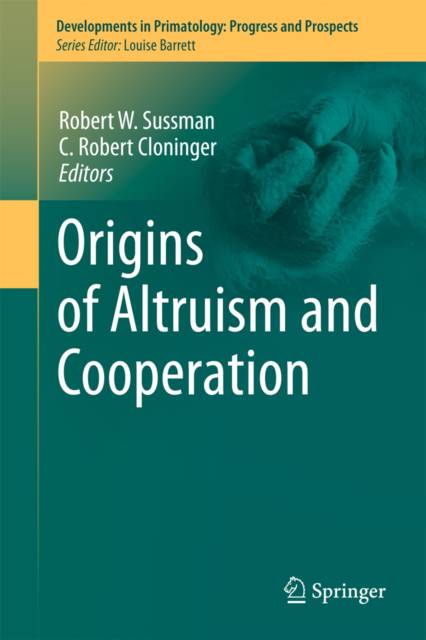
- Afhalen na 1 uur in een winkel met voorraad
- Gratis thuislevering in België vanaf € 30
- Ruim aanbod met 7 miljoen producten
- Afhalen na 1 uur in een winkel met voorraad
- Gratis thuislevering in België vanaf € 30
- Ruim aanbod met 7 miljoen producten
Zoeken
Origins of Altruism and Cooperation
€ 167,95
+ 335 punten
Omschrijving
This book is about the evolution and nature of cooperation and altruism in social-living animals, focusing especially on non-human primates and on humans. Although cooperation and altruism are often thought of as ways to attenuate competition and aggression within groups, or are related to the action of "selfish genes", there is increasing evidence that these behaviors are the result of biological mechanisms that have developed through natural selection in group-living species. This evidence leads to the conclusion that cooperative and altruistic behavior are not just by-products of competition but are rather the glue that underlies the ability for primates and humans to live in groups. The anthropological, primatological, paleontological, behavioral, neurobiological, and psychological evidence provided in this book gives a more optimistic view of human nature than the more popular, conventional view of humans being naturally and basically aggressive and warlike. Although competition and aggression are recognized as an important part of the non-human primate and human behavioral repertoire, the evidence from these fields indicates that cooperation and altruism may represent the more typical, "normal", and healthy behavioral pattern. The book is intended both for the general reader and also for students at a variety of levels (graduate and undergraduate): it aims to provide a compact, accessible, and up-to-date account of the current scholarly advances and debates in this field of study, and it is designed to be used in teaching and in discussion groups. The book derived from a conference sponsored by N.S.F., the Wenner-Gren Foundation for Anthropological Research, the Washington University Committee for Ethics and Human Values, and the Anthropedia Foundation for the study of well-being.
Specificaties
Betrokkenen
- Uitgeverij:
Inhoud
- Aantal bladzijden:
- 440
- Taal:
- Engels
- Reeks:
- Reeksnummer:
- nr. 36
Eigenschappen
- Productcode (EAN):
- 9781461429869
- Verschijningsdatum:
- 24/10/2013
- Uitvoering:
- Paperback
- Formaat:
- Trade paperback (VS)
- Afmetingen:
- 156 mm x 234 mm
- Gewicht:
- 635 g

Alleen bij Standaard Boekhandel
+ 335 punten op je klantenkaart van Standaard Boekhandel
Beoordelingen
We publiceren alleen reviews die voldoen aan de voorwaarden voor reviews. Bekijk onze voorwaarden voor reviews.







